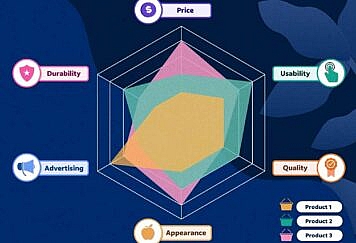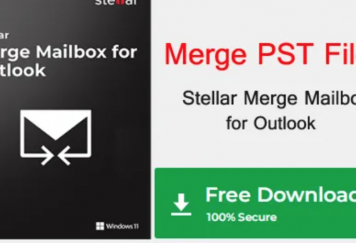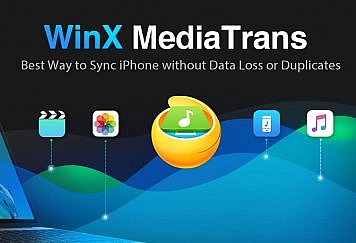In the world of finance and accounting, the process of closing books is a task that often elicits dread. Whether executed monthly or quarterly, this labour-intensive procedure is riddled with repetitive, time-consuming chores extending over days or weeks. The significant amount of time invested in closing the books hampers finance professionals from delivering valuable insights that could enhance organizational performance. Critical financial data, such as inventory levels, project milestones, and fixed asset status, is typically scattered across various departments and systems within a company. The effort required to gather and organize this data for book-closing purposes can be maddening. It’s essential to gauge information about NetSuite’s accounting capabilities with your trusted NetSuite partner.
Three Main Challenges:
-
Slow Updates:
One of the primary frustrations encountered by the accounting team is the need for collaboration with other departments to obtain the required data promptly. This challenge stems from waiting for information updates from other departments, needing more visibility into the status of recent orders and pending contracts, and frequently experiencing last-minute changes to already processed data. Keeping accounting data up-to-date, accurate, and complete is a constant battle.
-
Compliance:
Another significant challenge is ensuring that accounting processes and decisions adhere to relevant standards, including US GAAP, AASB, IFRS, industry or government regulations, and tax codes for all business jurisdictions. This encompasses the generation of necessary reports and the timely collection and payment of taxes to avoid penalties, fines, restatements, and extended, more costly audits.
-
Time:
The time consumed in the book closing process can be overwhelming. Accounting staff spend hours at the end of a reporting period reviewing transactions, chasing down errors, and rectifying journal entries to ensure that accounts balance. Manual calculations of depreciation and accruals, along with the correct recognition of revenue, further contribute to the time-intensive nature of this work. Much of this manual effort occurs outside the accounting system using spreadsheets, which amplifies the risk of errors.
Considering these challenges, adopting continuous accounting, a technology-driven approach, has gained prominence. It aims to distribute the accounting workload evenly, provide more immediate information, and replace the traditional month- or quarter-end deadlines with frequent completion of closing-related tasks. Continuous accounting necessitates the automation of routine tasks, especially those that are repetitive or involve complex calculations. Additionally, it calls for creating a collaborative culture within the finance department and between finance and other company departments. Such collaboration helps identify opportunities for process improvement and empowers accounting staff to add more value.
Continuous accounting is built on the foundation of a centralized data repository that grants finance and accounting personnel easy access to all pertinent information. This repository eliminates the need to chase down data and enhances accuracy since information can be entered once and instantly made accessible based on user roles and permissions. The result is a reduced manual rekeying of data from one system to another.
Benefits of Continuous Accounting
-
Visibility:
Continuous accounting offers real-time visibility into daily financial performance, providing department heads and senior leaders with the insights they need to control costs, make strategic investments, and achieve profitability goals. This real-time data is invaluable in a rapidly changing business landscape.
-
Automation:
Automating repetitive tasks, such as journal entry creation or account statement reconciliation, and eliminating data collection and normalization from various departments can save dozens of hours each month. This additional time can be used better, allowing finance and accounting staff to focus on reviewing transaction details, investigating anomalies, and analyzing trends.
-
Accuracy:
Combining automated processes and replacing spreadsheets for complex calculations enhances accuracy by eliminating duplicate data entry and potential errors caused by outdated spreadsheets or incorrect formulas.
-
Compliance:
Automation ensures consistent application of accounting standards, government regulations, tax laws, and internal policies. This is achieved by systematically applying the appropriate rules and schedules to revenue recognition, depreciation, prepaid and deferred expenses, and other financial processes.
Continuous accounting is poised to transform the world of finance and accounting by embedding processes into the daily routine rather than relying on end-of-month deadlines. With this approach, finance professionals can keep a closer eye on revenue recognition, manage depreciation, track leases, and easily handle complex subscription billing.
In addition, multi-entity financial consolidation becomes more streamlined with continuous accounting, eliminating the challenges of managing multiple subsidiaries or independent business units. Automating complex calculations, adhering to regulatory standards, and ensuring consistent results saves time and resources.
NetSuite Supports Continuous Accounting
Continuous accounting hinges on several key features and advantages offered by NetSuite:
-
Task Automation:
NetSuite streamlines finance processes by automating repetitive tasks such as journal entry creation, amortization, depreciation management, and eliminating intercompany transactions.
-
Centralized Database:
A unified source of real-time transactional, financial, and operational data is offered via a central repository within NetSuite. By doing this, the chance of error from entering data twice is significantly decreased, guaranteeing that all parties involved can access current and correct information.
-
Collaboration Features:
NetSuite’s collaborative capabilities facilitate easy information sharing, enable seamless communication, and support cross-functional collaboration. This aids in swiftly addressing challenges and solving problems, enhancing efficiency across the organization.
-
Embedded Analytics:
NetSuite’s embedded analytics empower finance and accounting professionals to uncover potential development opportunities and identify inefficiency that may impact profitability. This added value strengthens the financial and operational aspects of the business.
In the grand scheme, continuous accounting aims to deliver accurate, real-time financial reports when decision-makers need them most, providing instant insight into the business rather than reporting results weeks later.
In the fast-paced world of finance, where agility and accuracy are paramount, NetSuite ERP is emerging as a game-changer. As CFOs and their teams embrace continuous accounting, they find themselves equipped to make more informed decisions, save valuable time, and ensure compliance in an ever-evolving financial landscape. The evolution of finance is underway, and it’s being spearheaded by solutions like NetSuite ERP, which are transforming the role of the CFO and the entire finance function. Contact your ERP consultant today to learn more!
Follow TechStrange for more Technology, Business and Digital Marketing News.





